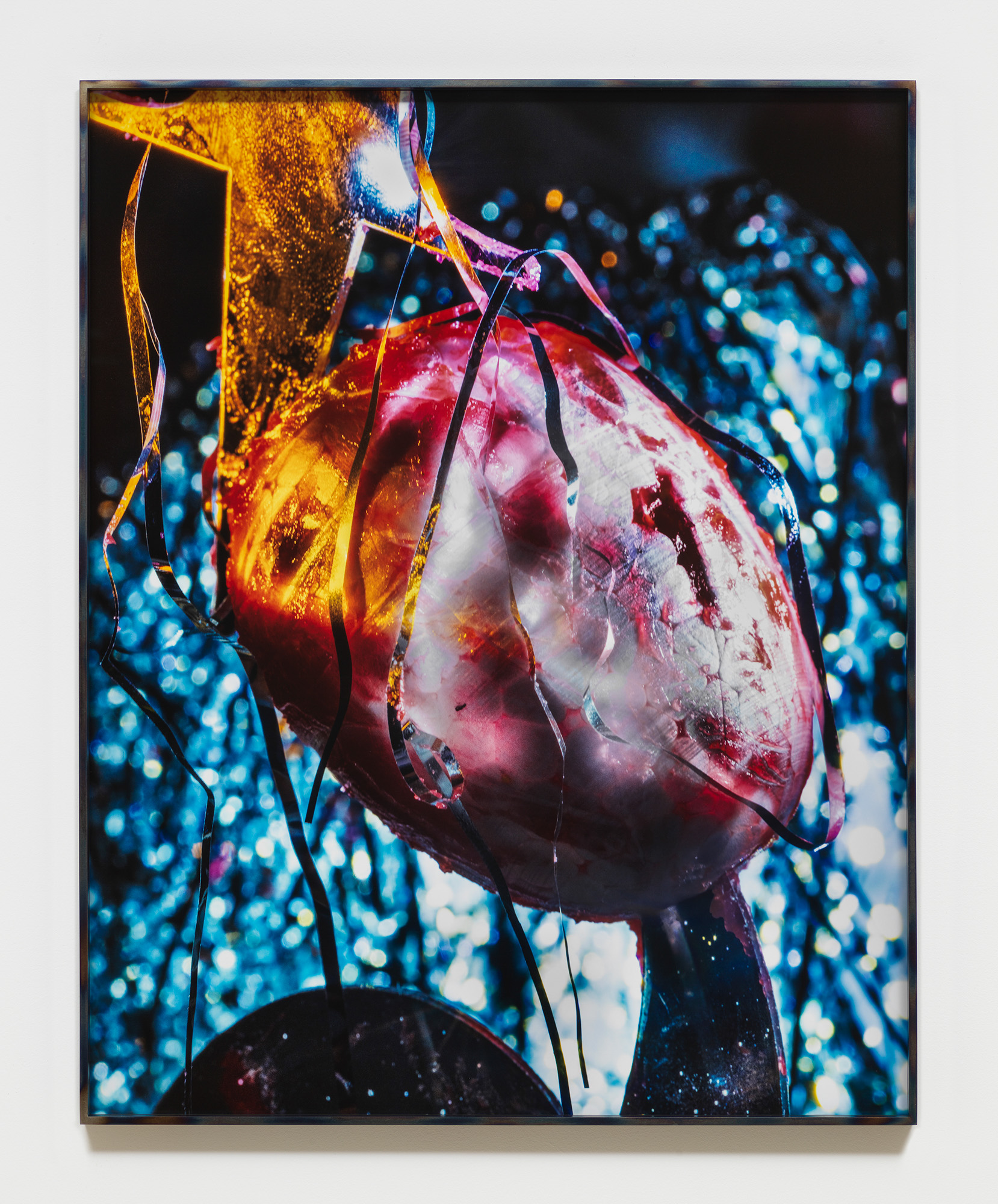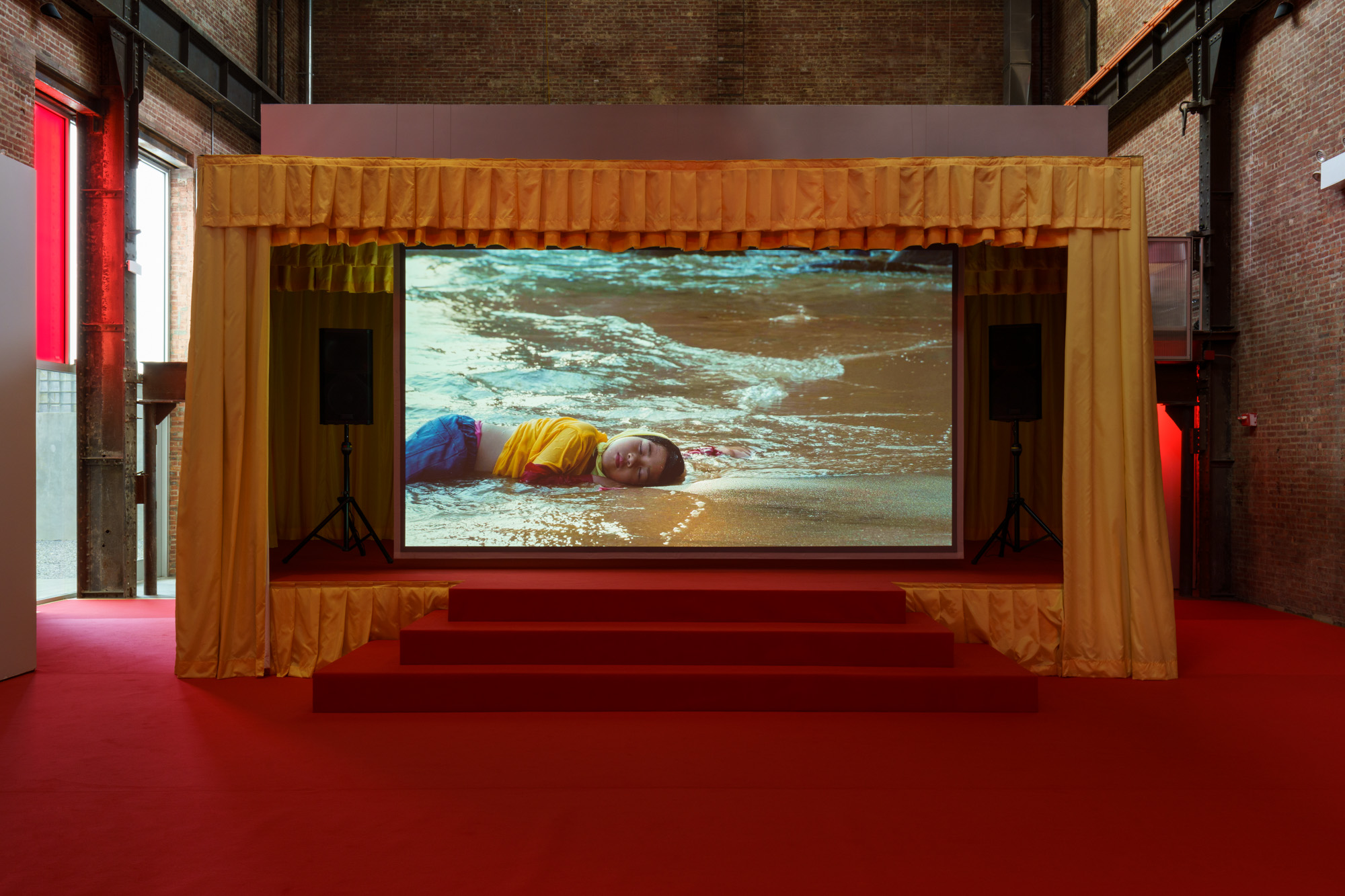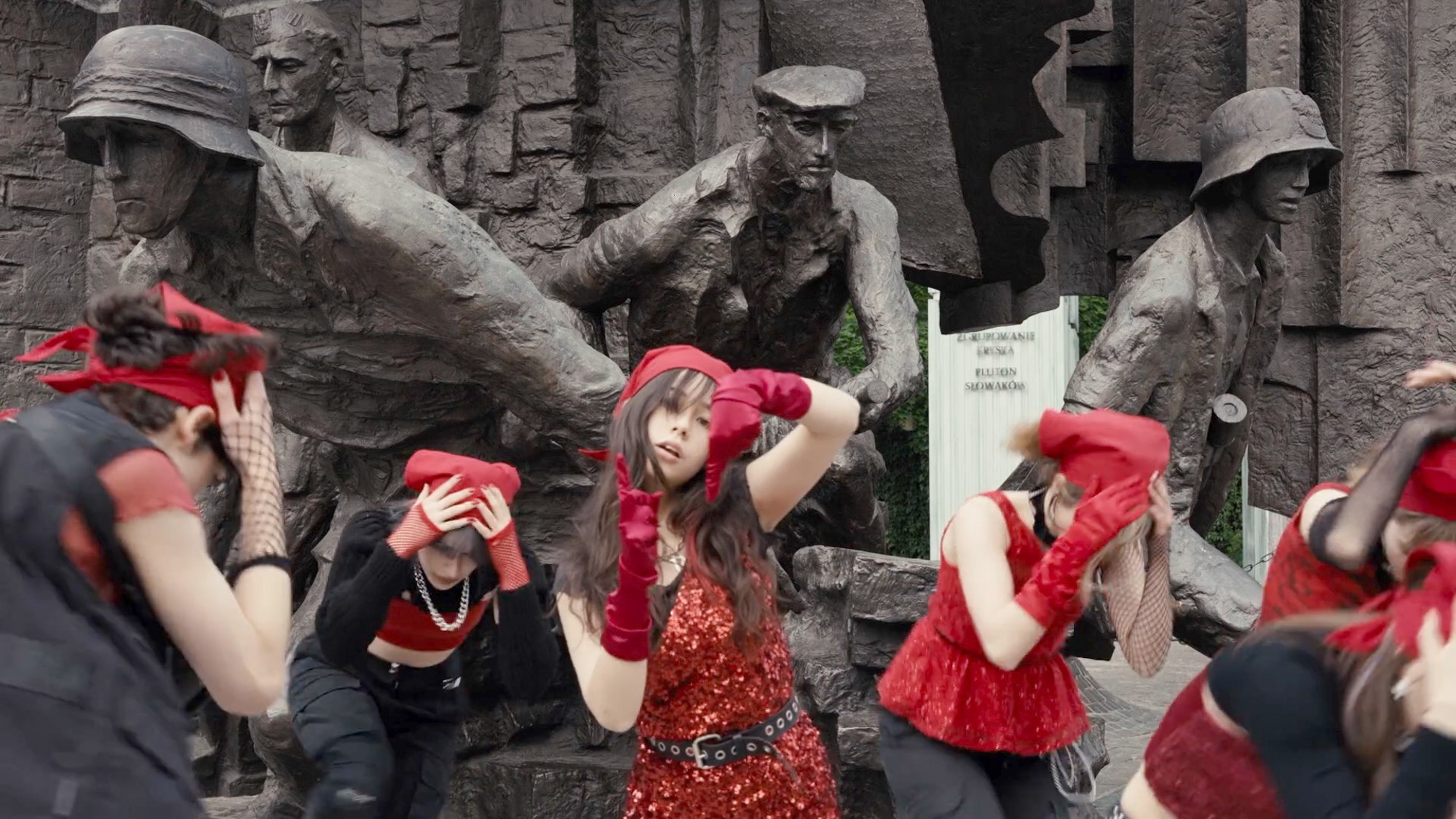Shows
Diane Severin Nguyen’s “If Revolution is a Sickness”


As a Korean American raised in the United States who used K-pop during her early teen years to establish an umbilical connection with her birth country, I have found the globalization of K-pop in recent years intriguing. In my mind, K-pop was ensconced squarely within a narrow orbit of diasporic longing. In Diane Severin Nguyen’s video installation, If Revolution is a Sickness (2021), which debuted at the artist’s solo exhibition at Sculpture Center, K-pop functions almost as a sign, migrating from context to context, not necessarily tied to Korean-ness. In this way, K-pop resembles diaspora itself: rootless, decontextualized, a sign that exceeds itself.
Set in Warsaw, the film opens with an orphaned Vietnamese girl washing up ashore. She wanders, alone, until she is taken in by a teenage K-pop dance group. Donning color-coordinated outfits, the ensemble performs synchronized dances set to music and lyrics co-written by Nguyen. Their choreography is intercut with brief glimpses of visually seductive, off-kilter scenes—a glass utensil puncturing a bleeding strawberry, a girl face-planting into what looks like a heart-shaped jello—reminiscent of the artist’s photographic works, some of which were on display in a room behind the video projection.

The film—its storyline but also its eerie soundtrack when K-pop is not playing—is troubled by a melancholic murkiness that was intensified by the industrial cavernousness of Sculpture Center’s exhibition space. Though decipherable with the aid of on-screen captions, the voice-over operates under its own logic, only rarely accompanying the image. The voice-over line, “Isolation will destroy you. It seeks to oppose brutal, material repression with nothing more than ideology,” for example, aligns loosely with the Communist sensibility permeating the dance performance’s backdrops, including Warsaw’s Palace of Culture and Science (gifted to the city by Joseph Stalin in 1952), Soviet monuments, and bleak industrial zones. Interspersed in the voice-over are other oblique and poetic phrases culled from revolutionary writings by figures like Hannah Arendt, Mao Zedong, and Ulrike Meinhof. The gravitas of these fragments heightens the incoherence and even campiness of the film, as they are at odds with the zany K-pop energy.

Nguyen is conscious of photography and film as mediums that necessarily exclude parts of reality (“to photograph is to frame, and to frame is to exclude,” cultural critic Susan Sontag famously wrote), but she engages with the possible productivity of these limitations. “I’m actually dismissing legibility so that I can access a new kind of clarity,” Nguyen said, “one that is immanent to the image, a lucidity that cannot be usurped by someone’s ‘knowledge’ of the thing being photographed.”
Underpinning the film is the issue of what is clear and to whom, and the fraught process of “finding shared symbols,” as the exhibition didactic explains. What is noteworthy is the cannibalization of K-pop as a central factor of this process—the mode of “finding shared symbols” among these teens is one that has been imported from a foreign country that they likely have multiples degrees of removal from. The distance bridged by these teens’ embracing of K-pop is made possible by our digitally networked reality, but perhaps it also speaks to our desire to self-identify through an entity whose origins are so removed from us that it represents a tabula rasa. I am interested in this more as a question of aesthetics rather than ethics.

The tension between closeness and distance likewise underpins Nguyen’s method of casting the lead actress of the film, Weronika Nguyen. The artist found her on Instagram by combining a common Polish first name with her own Vietnamese surname, thus stumbling on a stranger across the world using an expedient method of intimacy, searching for kin with the same last name. Here, Nguyen hints at what is at stake in her work: a sense of belonging that is not tethered to a single place or context.
In commingling various realities—the rarified world of revolutionary texts and the over-exposed phenomenon of K-pop, a revolution of another order—Nguyen traces the contours of what her conception of clarity might look like.
Diane Severin Nguyen’s “If Revolution is a Sickness” was on view at Sculpture Center, New York, from September 16 to December 13, 2021, and will be at The Renaissance Society, Chicago, from May 14 to June 19, 2022.







